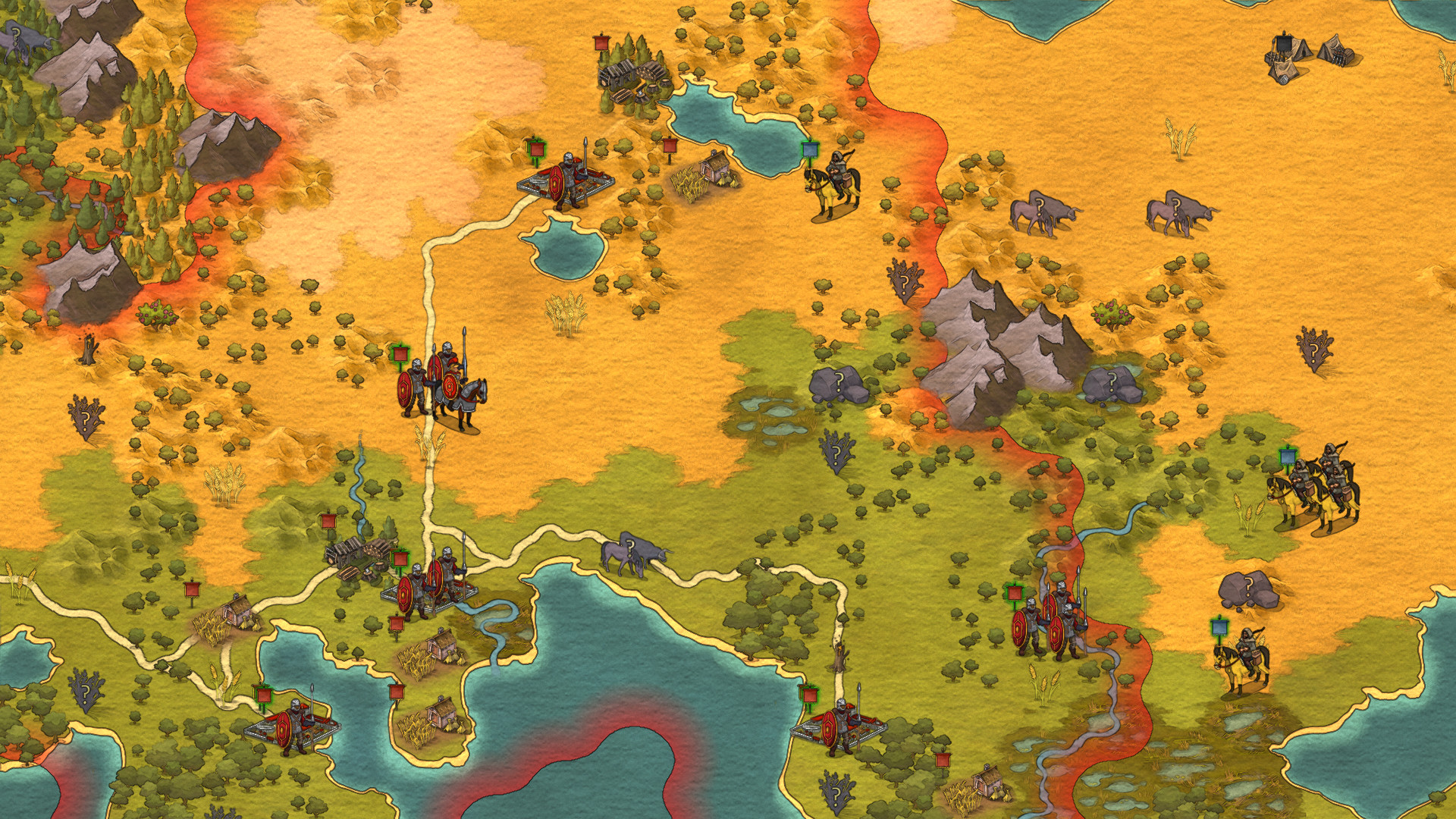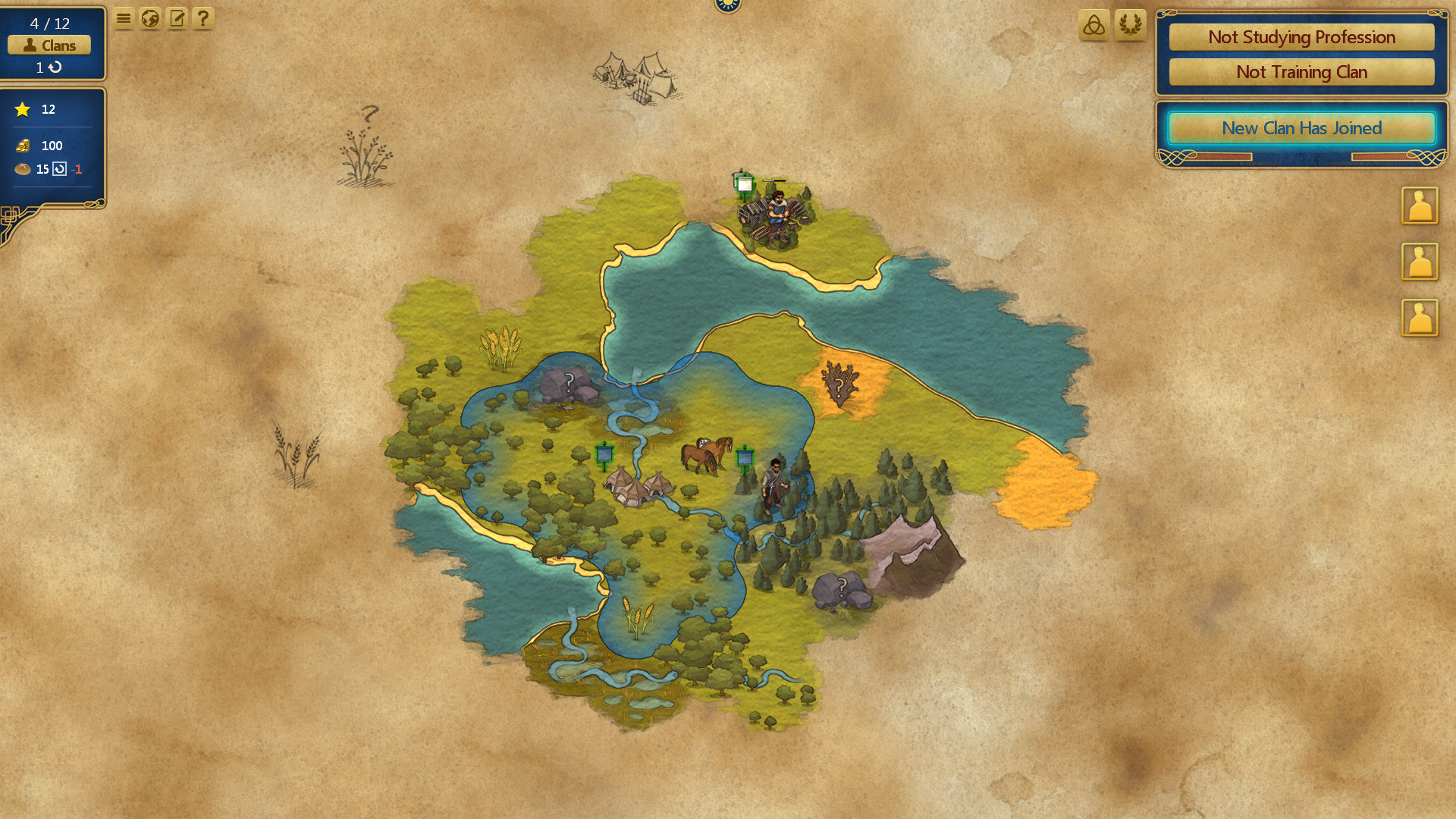“At the Gates is the most Marmite of strategy games…”
At the Gates is a historically-inspired 4X and grand strategy hybrid game, developed by veteran Civilization V designer Jon Shafer. The game, which sees you attempt grow an alliance of clans from the ground up in an attempt to overthrow the Roman Empire, takes clear notes from Shafer’s previous successes and other, similar titles alike. A self-proclaimed long and difficult experience, At the Gates is a strategy game for strategy game fans, and is certainly not for the feint hearted…
When you start a game in At the Gates, you quickly notice 3 things. First, that the game looks remarkably beautiful. Despite dull and muted tones, befitting of the game’s themes and setting, the watercolour-based art style laid upon a golden-brown canvas backdrop is exceptionally pleasing to the eye and impossible not to behold in immediate awe. If first impressions are crucial, At the Gates makes a good one.

The second thing you will notice is that the game immediately proclaims that it is hard. At the Gates does not presume to keep any secrets about the type of game it is designed to be, and exactly what you are signing up for. A message-come-warning lets you know that this experience is going to be both long and challenging and admits that it will feel distinctly slow in places. Whilst this admission is equal parts bold and courteous of the developers, I couldn’t help feeling that it was being used as something of a “get out of jail free card” move to avoid any negative response to the mid-game pace…
The third revelation which your inception into At the Gates will unveil is that you should be prepared to do a lot of reading in this game. There are a vast number of helpful but wordy tutorials within the first half-hour of gameplay, which attempt to hit you with all of the basics before you make your initial in-game decisions. To me, this method of teaching felt like too much, too fast; especially for a game that has just told you that it is complex and challenging. It wouldn’t have killed the creative team to have at least voiced over these instructions in the name of making their game more welcoming and indeed inclusive. Nevertheless, the information provided in these tutorials is indeed useful and does set you off along the right path.

Once you have read through the start-of-game instructions, you are ready to birth your will-be empire. You begin the game with a flurry of clans willing to support your leadership. Each clan in At the Gates comes with distinct benefits. These may be proficiencies in particular areas of employment, or boons which make them quicker to teach or perform specific tasks. Some clans come with negative traits to match, though, such as significant de-buffs if placed in certain career paths or a natural inclination towards trouble. On both sides of the coin, character management is at the core of At the Gates. Utilising clan traits and monitoring their ever-evolving desires is key to gathering a viable Rome-defeating force.
Surviving long enough to gather such a force is the greatest challenge of At the Gates. In this game, resources are profoundly finite and the world is out to get you. Whether it is the cold, harsh front of winter taking its toll on your food and your people or aggressive neighbours who seek to oust you from your would-be throne, At the Gates rarely takes a break from poking you with a metaphorical stick to test your grit. The procedural generation of the game world ensures that each game’s challenged are different, too, meaning that you cannot learn to beat the game; only to overcome what it throws at you. For your first couple of games, however, At the Gates at least does you the sympathy of generating an easier world for you to learn in. Alas, that is about all of the charity you can expect to receive.

There are clearly plenty of challenging, evolving and indeed inspired mechanics at play in At the Gates, which on paper make it sound like an impressive game. In reality however, I found At the Gates to be something of a slog. The game’s early-to-mid game pace is, indeed, rather slow; to the point where it can quickly dissolve into boredom. Unless this is very much the style of game for you, a deep-rooted lover of all thing grand strategy, there is a strong chance that you will switch off before the action happens. My strongest feeling when playing the game was that it was visibly based on Civ in places, and eventually made me want to play that game instead…
At the Gates is the most Marmite of strategy games that I have ever played. I am 100% certain that there are people out there who will absolutely love it, but it just isn’t the one for little old me. Impressive and intriguing systems are limited by the pace at which they come into play, and little is done in the early-to-mid game to keep up your excitement or attention. The premise of every aspect of the game entices me, but playing it sadly felt just a little dull. Nevertheless, if you are a fan of similar “big and serious” strategy games, At the Gates is well worth giving as try. Not to be ruled out, but certainly not for everyone, Jon Shafer’s newest strategy title is someone’s cup of tea; it just wasn’t mine…
Grab the game on Steam if you are interested https://store.steampowered.com/app/241000/Jon_Shafers_At_the_Gates/
The code was supplied to us by the developers on PC








You must be logged in to post a comment.